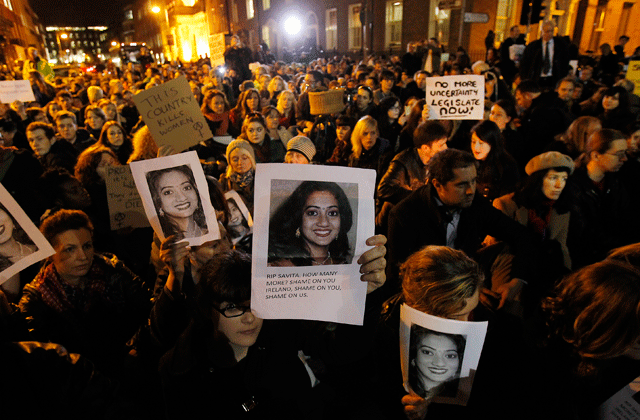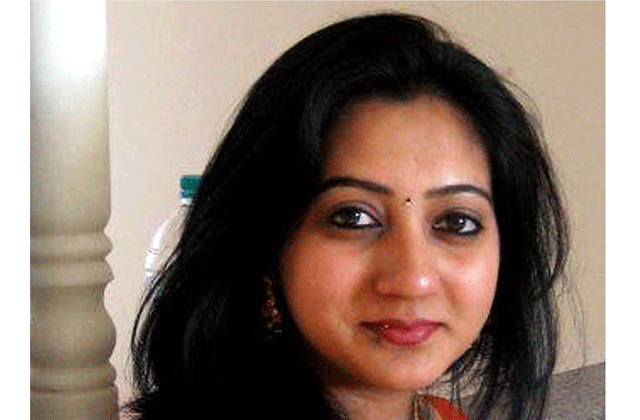
Dubai: The Indian government is raising concerns with the Irish government over the tragic death of an Indian woman who was denied an abortion, and New Delhi’s embassy in Dublin is following the matter closely.
Savita Halappanavar, 31, died from septicaemia and E coli in late October, a week after she presented at a hospital in Galway suffering from back pains and bleeding four months into a pregnancy.
Under a strict interpretation of Ireland’s constitutional ban on abortions, Halappanavar could not be treated with the procedure because medical staff detected a foetal heartbeat. One member of staff told the couple the abortion procedure could not be performed because “this is a Catholic country.”
Speaking to The Irish Times yesterday from Belgaum in southwest India, Savita’s husband, Praveen, he said most of their friends in Galway had had babies there. The couple moved to Galway in 2008.
“Savita was very excited, very happy. All our close friends came to congratulate us. We had a dinner at home, and it was early morning on Sunday she had the severe back pains.”
She later went to Galway University Hospital where it was discovered she was miscarrying.
Despite her making a number of requests for the pregnancy to be terminated – given the distress she was in and the fact the baby could not be saved – she was repeatedly refused because the foetal heartbeat was still present, Praveen had said.
The heartbeat stopped on October 24, the womb contents were removed and Savita was moved to the ICU, where she died four days later.
“[Savita] has a lot of doctors in her family, a lot of medical people – her uncle, her aunt, many people who are in medicine – and they are all asking, ‘How can this happen in the 21st century, when the medical field is so advanced?’ and ’Why didn’t they abort her?’
“So I had to explain the whole thing, about the law there and how the foetus is live, and they were all just, some people even laughed at me. ‘That’s crazy’, they said. And I just had to tell them, that’s the way it is, that unfortunately that’s the country we were in at the time.
“People keep asking me, ‘How could they leave the womb open for two days? There is a high risk of infection there.’
“A common thing I’m asked: ‘The mother’s life is a bigger life. They knew that they couldn’t save the baby. Why didn’t they look at the bigger life?’”
A spokesman for the Indian government said that the death of an Indian national in such circumstances is “a matter of concern”.
“Our embassy in Dublin is following the matter closely,” the external affairs spokesperson said.












